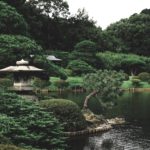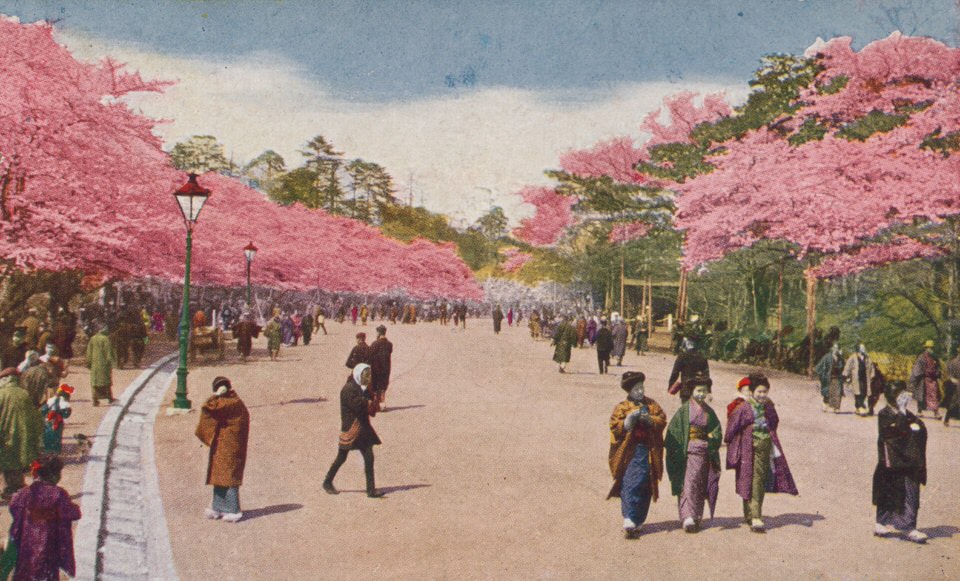Japanese Shizen (自然) is usually translated as "nature," but if we look at meaning of the Japanese word shizen in comparison to the foreign word nature, we can glimpse the differences and history of the Western and Eastern views of nature. How do the Western and Japanese views of nature differ? "Let's take a look at the word Shizen and Nature.
Definition / Original Meaning of Nature
When people think of nature, the first thing they might think of are mountains, forests, rivers, and plants. According to "西洋の哲学・東洋の思想 (the Western philosophy and Eastern thought) by Kunitsugu Kosaka, it was not until the end of the Meiji era that the word "shizen(自然)" was used in the sense of "nature(=mountains, rivers, plants, etc)".
In the book, the original meaning of "自然" as found in the Iwanami Dictionary of Ancient Japanese Words is introduced.
Dictionary of Ancient Japanese Words :
- spontaneous
- Unexpected situations or things (cannot be influenced by human power)
- Adverbs: just in case, perchance
Nature (mountains, forests, rivers, plants, etc.), which we usually imagine, does not appear in this definition. The book also mentions that "Shizen" and "nature" are not strictly synonymous.
The following definitions are from the Meiji era and include the Western definition of "Nature" (Reference : Shizen and Nature: An investigation into the Middle English kynde by Yoshiko Asaka). From these two definitions, the differences between the Western and Eastern views of nature become more apparent.
Definition of Shizen :
- 'Mountains, rivers, grass, trees, the world of all those things which do not include humans and those things which do not include humans and those things which humans have made.'
- 'Everything between heaven and earth, including humans. The cosmos.'
(DaijisenDictionary, First Edition, 1998)
Why have these differences in expression arisen?
Western thought
Definition 1: 'Mountains, rivers, grass, trees, the world of all those things which do not include humans and those things which do not include humans and those things which humans have made.'
From the definition 1, we can see the western idea.
In the Western view of nature, spirit and nature were considered separate. It is also characterized by the idea that humans should dominate and use nature through science and technology. In "西洋の哲学・東洋の思想 (the Western philosophy and Eastern thought)", Lynn White Jr. says that the modern Western idea of nature domination has its origin in the anthropocentric Christianity of the 13th century, which taught that it was God's will to exploit nature.
Eastern thought
Definition 2: 'Everything between heaven and earth, including humans. The cosmos.'
On the contrary, according to the definition of 2, we can see that nature includes human beings. On the official blog of the Mori Art Museum, the director of the Mori Art Museum, Mami Kataoka, says the following.
In Japan, there was originally a concept called "jinen (自然)" which means "to be naturally" or "to be as one is," and it comes from the Buddhist philosophy of Shinran and Dogen, which originated from "Mui Shizen(無為自然)". In Japan, the term "shizen" does not refer to nature such as the wild or primeval forests that compete with humans, but to a broader object that encompasses all things in the universe, of which humans are a part.
Shizen is also expressed as "自然 (shizen)" in Kanji, and each kanji has the following meanings
- 自 - by itself
- 然 - to make it so
The following is a separate summary of the differences between the Western and Eastern views of nature.
-

-
How Western and Japanese see nature differently
Westerners and Japanese have historically had different views of nature. This fundamental difference has led to the creation of different cultures. I would like to compare and contrast the ideas behind the cultures we have today. How do they see nature differently? The following are some of the differences between the Western and Eastern views of nature. The Western View of Nature : Nature is to be developedHumans are given “dominion” over nature. Japanese view of nature : Nature is considered to be sacred.Humans should adapt to nature. Science is probably the most representative idea born from the Western view ...
続きを見る
Why was the word "nature" translated as "shizen"?
The Nature Conservation Society of Japan states that originally, Japan did not have the word "nature" to describe plants and trees. In addition, Toru Sagara, a scholar specializing in the history of Japanese thought, says in the article, the word 'nature' was probably translated from the word 'shizen' because plants and trees were regarded as something that 'naturally' existed there. The word "shizen(including western view)" was born from the Japanese view of shizen in the past, which saw the surrounding mountains and plants as something that naturally existed.
Reference: 「自然」は新しい言葉(やさしくわかる自然保護2) 「自然(しぜん)から「自然(じねん)」へ~インタビュー:ネイチャー・センス展を目前に(2) Yoshiko Asaka, Shizen and Nature: An investigation into the Middle English kynde (2009) Kunitsugu Kosaka, 西洋の哲学・東洋の思想 (2008)







